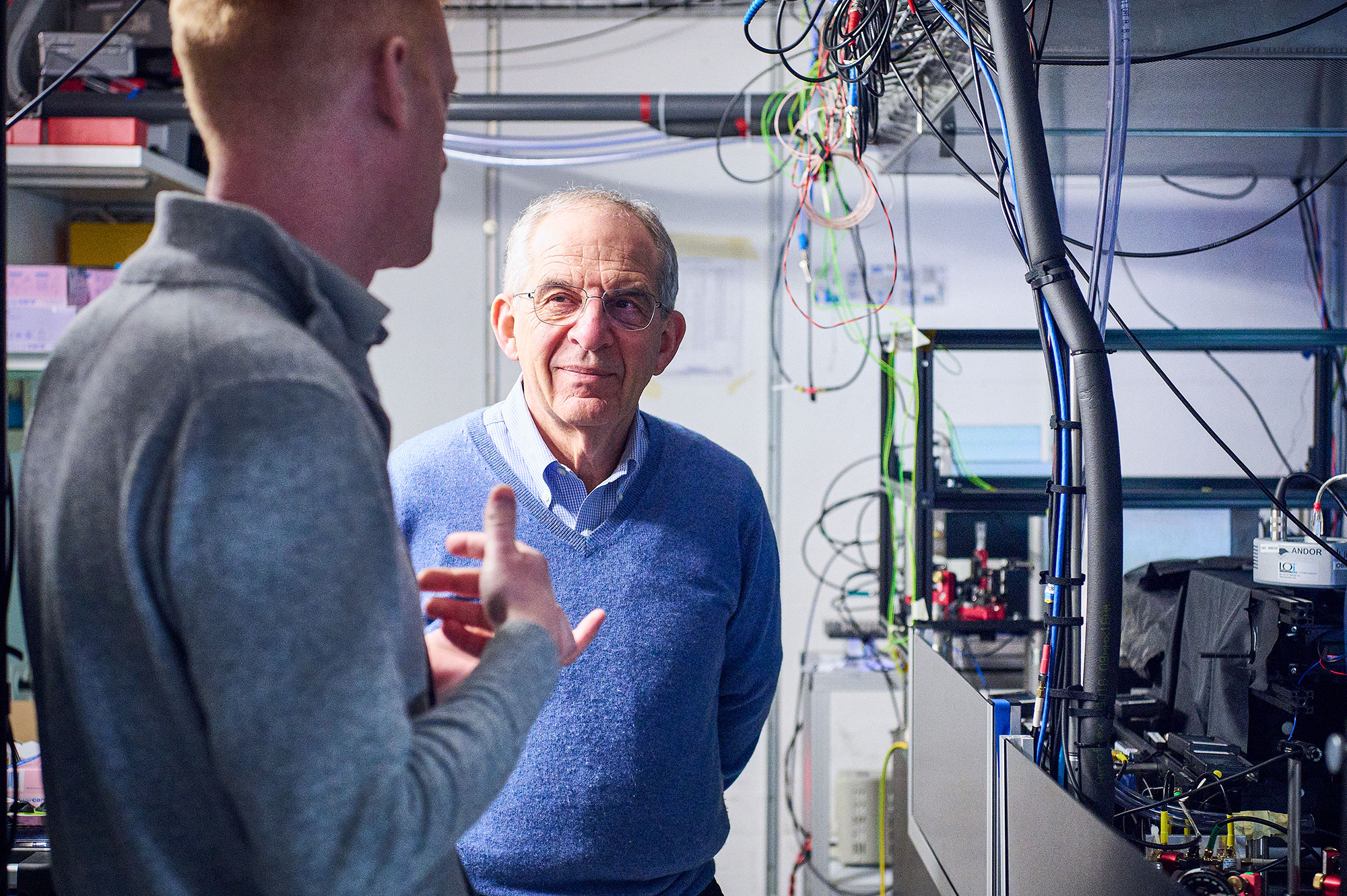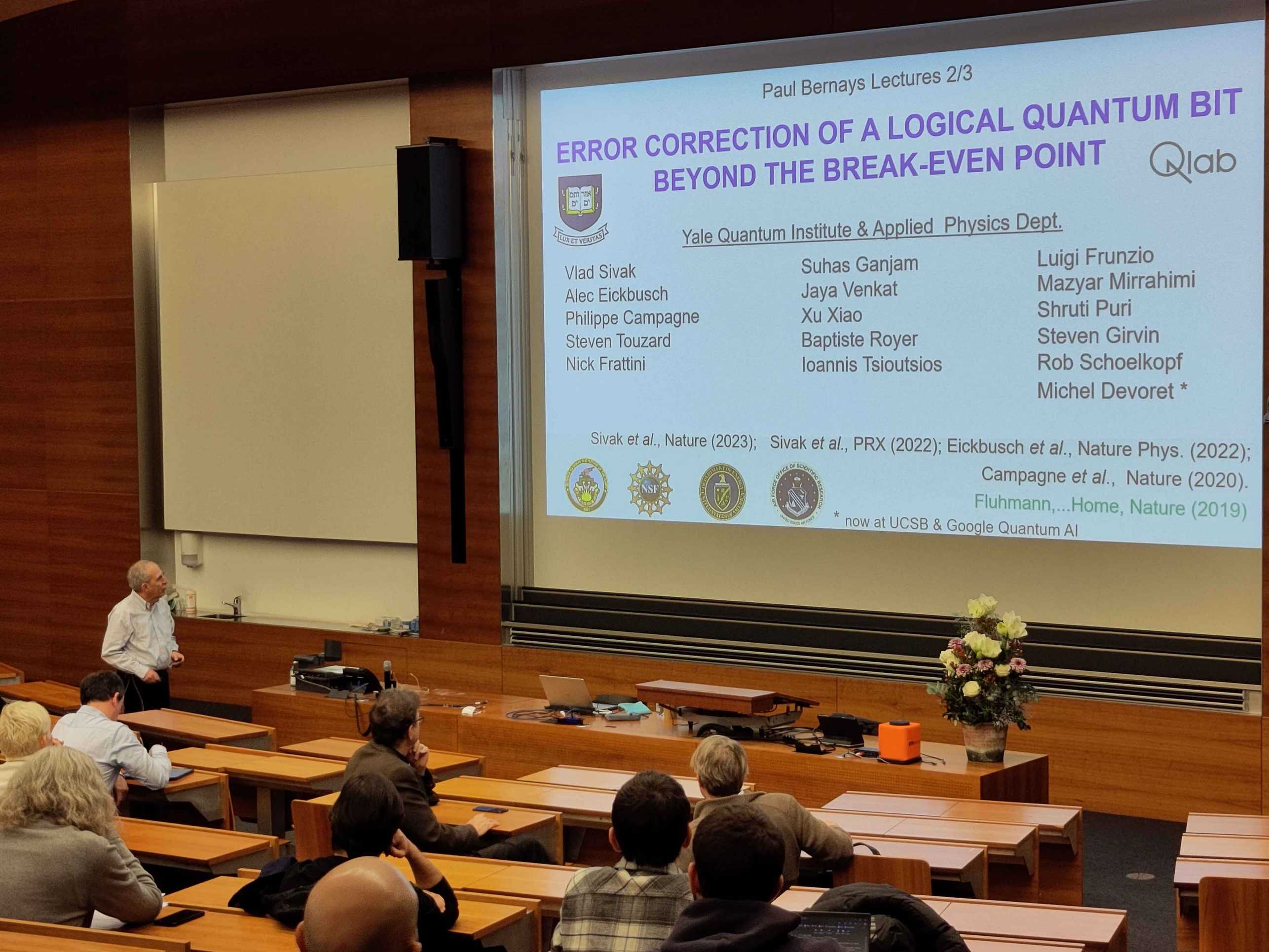Nurturing quantum connections
As the speaker at this year's Paul Bernays Lectures, Michel Devoret discussed quantum information processing with superconducting circuits – and took the time to find out about the variety of research activities in the physics department, too.

From the viewpoint of physics research, if the 19th century was the century of energy and the 20th was the century of matter, the 21st century could be the time when physicists tackle a subject potentially more fundamental than both, which is information. This is how Michel Devoret, Professor of Physics at the University of California in Santa Barbara and Chief Scientist at Google Quantum AI, introduced the topic of his first talk in this year's Paul Bernays Lecture series. Devoret benefits from the broad perspective of a researcher whose career has spanned the history of a highly successful area of study: this started with fundamental investigations on the properties and behaviours of superconducting circuits, and it developed into working out how these mesoscopic systems can be used to build devices that can store, manipulate, process and measure quantum information.
The timing of Devoret's visit at ETH Zurich couldn't be more appropriate. As we prepare to step into 2025, the external page International Year of Quantum Science and Technology, Devoret's talks illustrated how far quantum physics has come and how much more there is to explore and understand.

Alongside his well-attended lectures, which sparked lively exchanges with the audience, Devoret took the opportunity to meet with many researchers in the Department of Physics. "I feel very lucky to be able to see the excellent physics that's done here, and which is very much connected to what I discuss in my talks," said Devoret. As he presented some of the most recent work done in his group on quantum error correction with superconducting qubits, for example, Devoret pointed out how these results were also influenced by the research done in the group of Professor Jonathan Home. Home and his team work with a different physical system, namely trapped ions, but they are equally interested in error detection and correction. In some cases, Devoret's tour of the department took unpredictable directions. When he met with Dr Alexander Eichler, a visit that started with a focus on nanomechanical sensors developed into a mutually fruitful conversation on coupled nonlinear oscillators with parametric modulation. While at ETH Zurich, Devoret also met with Professors Andreas Wallraff, Tilman Esslinger, Ataç Imamoglu, Eugene Demler and Yiwen Chu – making his visit cover three of the four institutes in the department. Overseeing the rich schedule of meetings was Professor Gian Michele Graf, whom Devoret warmly thanked for the hospitality.
The Paul Bernays Lectures are an annual, three-part honorary lecture series about the philosophy of the exact sciences. This lecture series honours logician, mathematician and philosopher of logic and mathematics Paul Bernays, who worked at ETH Zurich from 1933 to 1959.
More information can be found on the website of the Paul Bernays Lectures.